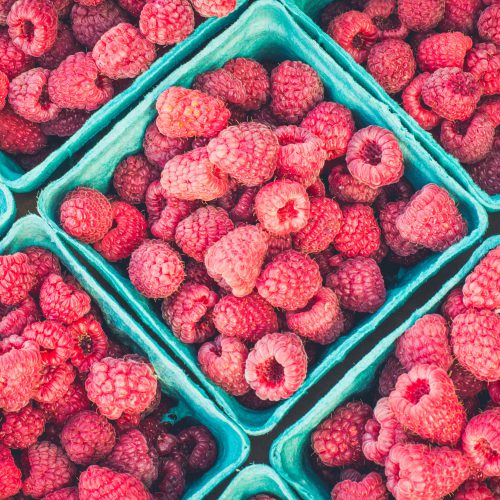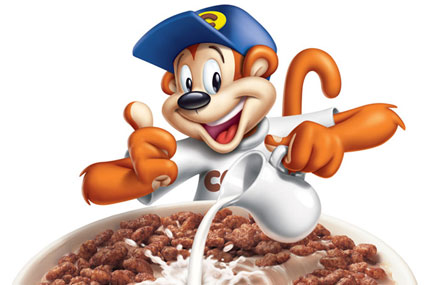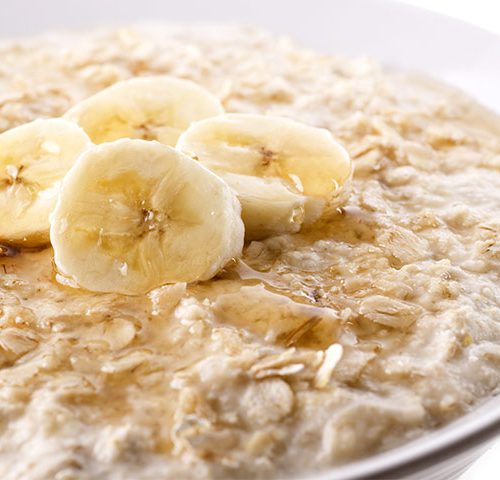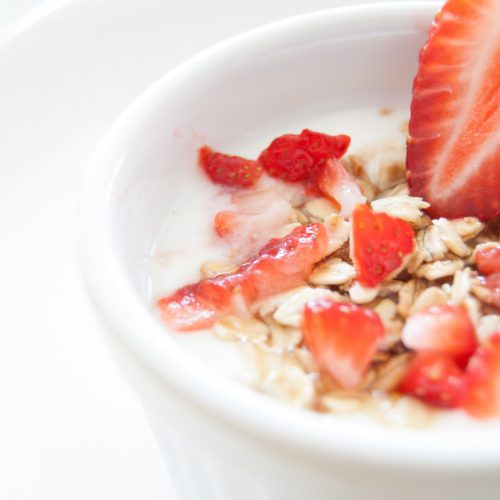Confused about carbs?
Carbs often get a LOT of bad press when it comes to fat loss.
You’ll no doubt know people who have cut carbs, and as a result have lost weight?
You’ve maybe even done this yourself?
Cut out bread and lost weight?
Then reintroduced it and gained weight again?
Every now and again, something seems to get demonised in the world of nutrition and health, and carbs have certainly had their fair share of hate over the years.
All are carbs the same? Will carbs make you fat?
Should you avoid them at all costs? Do you need carbs?
Let’s nail some basic first, and look at the different types of carbs:
Carbohydrates– the name means carbon plus water.
Carbs hold water in the body, which is why dropping carbs can result in (fairly) quick weight loss due to a loss of water weight.
There are 2 main types of carbs (dietary fibre is the 3rd, but I’m focusing on the following from an energy perspective):
Simple Carbs.
Complex Carbs.
Your brain and nervous system utilize carbs for energy. In the body, carbs are broken down into a molecule called glucose, which is either used for energy or stored for later use.
All of the above are made up of units of sugar, the difference between each type of carb is simply the number of sugar units it contains and how they are linked together.
Simple Carbohydrates:
These are made up of 1 or 2 units of sugar.
Carbs with only 1 unit of sugar are called simple sugars, but their formal Sunday name is ‘monosaccharide’ (it’s Greek ha).
Fruit also falls into this category as Fructose.

Carbs with 2 units of sugar are called double sugar (no surprises there) with the fancy name of ‘disaccharide’.
Common day to day examples of simple carbs include sweets, cereals (coco pops etc) cakes, Lucozade and other energy drinks.
Simple sugars are often linked to the above processed foods (hence the bad press), but the reality is they are present in a range of naturally occurring foods such as the aforementioned fruit, but also in veggies & milk products.
What separates the two is that the naturally occurring food choices will also contain naturally occurring vitamins and minerals, making them a potentially more nutritionally dense choice.
This why many people would consider a banana to be ‘healthy’ and Skittles ‘unhealthy’.

They both contain simple sugars, both contain calories, both would have a similar effect on blood sugar, but as the banana is natural or what could be deemed as ‘real food’ it also provides the body with vitamins and minerals.
However, there is no real rational argument to support eating 5 bananas a day (even though it is ‘healthy’ and one of the ‘5 a day’) if the goal is fat loss as this can clock up around 500 kcals, which is quite a chunk out of anyone’s daily allowance.
If you are looking for a lower calorie fruit option, try pineapple, watermelon, berries, fresh or frozen (frozen are a lot cheaper).

Simple carbs are very fast acting, and quickly absorbed by the body to produce energy. Because they are broken so quickly they cause a rapid increase in blood sugar levels.
This is why it is common practice when anyone feels dizzy to give them a sugary drink or snack.
There are pros and cons of implementing simple sugars into your diet, depending on how and when these choices are made.
Before I go any further, this is probably a good place to emphasise and stress that (despite what the media will have you believe) sugar in isolation is not responsible for making you or anyone else fat!!
The single most important factor in weight loss and weight gain is the total amount of calories consumed and whether an individual is in a calorie deficit or a calorie surplus.
Excessive calories creates weight gain, NOT excessive sugar!
However, practically speaking sugar isn’t particularly filling, and as it digested so quickly this is what can make it very easy to overeat on.
Try it: eat a bowl of kids cereal and tell me you aren’t hungry again within an hour?

Does a slice a cake actually fill you up and leave feeling satisfied in terms of hunger?
Or does it just ‘keep you going’?????
However there may be times when you wish to consciously implement fast acting sugars into your routine, and placing them around your workout window can be an advantageous choice for some people. This may be time when you want to consider choosing foods that can be digested easily, as long as it fits into your total daily intake in terms of calories.
I deal with a lot of people who claim to have sugar cravings, and who also believe that they have a perceived ‘weakness’ when it comes to certain food choices.
If you feel you are craving sugar or something sweet, it’s very often down to your blood sugar levels dropping and you needing that ‘quick fix’ to bring them back up rapidly.
The easiest fix for this to simply try to eat a bit more regularly if possible. This isn’t to do with metabolism (that’s a whole other subject) but practically speaking leaving large gaps between meals can often lead to you to reaching for the quickest sugary fix.
Complex Carbohydrates:
When these carbs are made up of 2 or more units of sugar their funky name is ‘polysaccharides’, when these carbs have 3 to 10 units of sugar they can be called ‘oligosaccharides’.
Common day to day examples of complex carbs include: porridge oats, rice, pasta, bread, potatoes, and beans.

The key to complex carbs is in the name, as they are made up of many many units of sugar, this is what makes them ‘complex’.
This is why complex carbs take a lot longer to digest than simple carbs. This results in glucose being released slower and at a steadier rate than simple carbs.
Opting to fuel your body on complex carbs may help to provide stability in your blood sugar levels and potentially help with those cravings.
For example:a bowl of porridge oats will leave most people fuller for longer compared to a bowl of rice krispies.

If you feel you giving in to cravings, I always advise noting at what you have eaten on that day in question and looking for patterns linked to the choices you are making.
How many carbs do you need? When should you have them? What if you are ‘sensitive’ to carbs?
The subject of carb consumption and when/where you should eat them can be a very confusing topic, and there are many strategies that can be utilised, all to a potentially positive effect.
You may have heard or read about the following:
Cycling carbs (using low & high carb days).
Nutrient timing (placing majority of carbs around the workout).
Carb back loading (eating most of carbs on the evening or later in the day).
Intermittent fasting (consuming all your daily calories within a set timeframe each day).
All of which have their place, based on activity levels, training intensity, lifestyle and personal preferences.
I’d just like to reinforce the fact that THE single biggest factor in fat loss is ensuring you are in a caloric deficit. The subject of when you place the carbs and how many you have/need is irrelevant if you are not in a deficit. To read more about calories click here.
THE most important factor is your overall net energy balance opposed to where you place the carbs in your diet.
How many carbs do you need?
A very simple way to look at this is to consider that:
Carbs are fuel, but are you using the fuel?
If you have a busy/active job, have a high daily step count, on your feet all day AND you are training hard consistently, then the chances are you may need more carbohydrates than a sedentary inactive person.
If you are sitting on the sofa all day having a lazy movie day and not training, do you need as much fuel?

There are ALWAYS medical exceptions to everything that I have stated, and some people will have issues in tolerating certain macronutrients. Just as some people will have genuine hormonal issues that will create issues with carbohydrate consumption.
If this is the case then medical advice/guidance is the best step forward. Blood testing can be done to help assess genuine issues.
Practically speaking carbs can be easy to overeat on, a big factor in this is often cost.
For example: rice, bread, potatoes, & pasta are all relatively cheap options that provide larger quantities of food compared to protein sources like fish & meat.
However, for a LOT of people, when it comes to claims of carbs being their enemy, they are simply NOT doing the following:
Ensuring they are in a caloric deficit.
Matching their carb intake to the demands of their day (ie they are simply not moving enough on a daily basis).
Training hard consistently and progressively (this is always relative.)
If you consider all of the above factors, it becomes clearer how some people appear to handle carbs better due to better due to activity levels and training intensity.
If you are reading this and have no idea of your current daily caloric intake, start by tracking your foods:
Download MyFitnessPal, it’s a free app that’s pretty easy to get your head round and will help you log your daily intake.
Start by looking at the TOTAL daily calorie intake, before deciding how many carbs you are or are not going to consume.
Remember: If you overeat on ANY macronutrient (protein, fat or carbs) you will NOT achieve your fat loss goals.
As ever, if you need any help in putting any of this into practice, give me a shout.
Tristan ‘carbs carbs carbs’ Buttle.